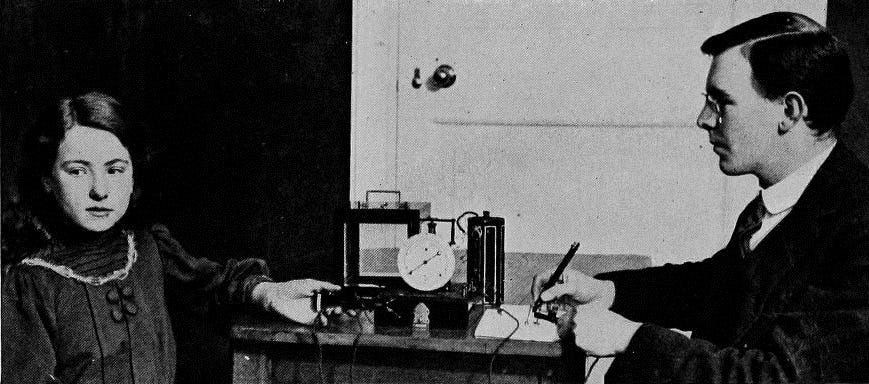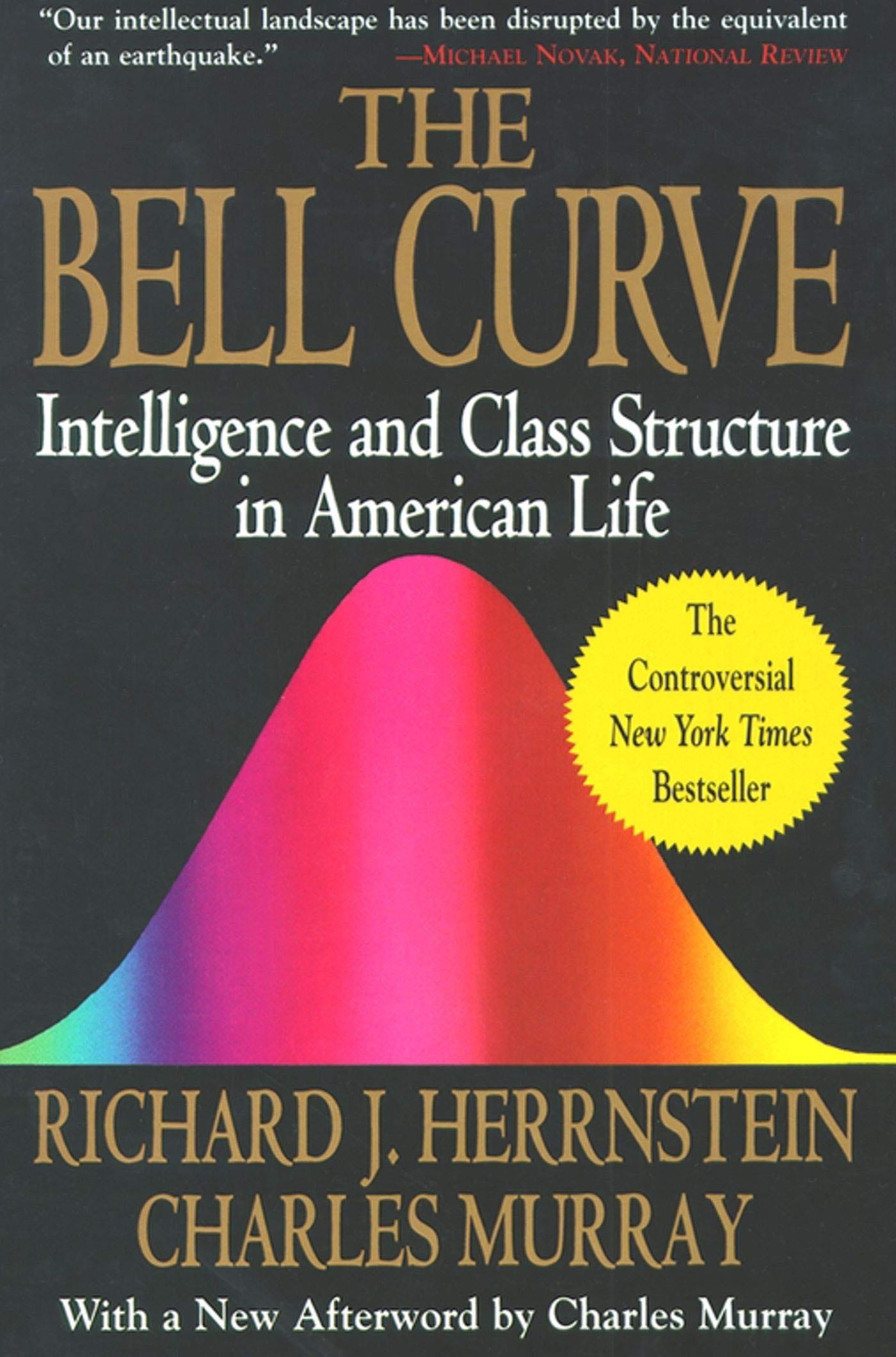Polygenic Scores Will Replace Standardized Tests and Save The Meritocracy From Woketopia
Whole genome beats holistic all day
Those of us who love the meritocracy find ourselves rhetorically outgunned these days. Or at least out-authored. So let’s bring on the reinforcements!
There’s The Meritocracy Trap by Daniel Markovits, Excellent Sheep: The Miseducation of the American Elite and the Way to a Meaningful Life by William Deresiewicz, The Tyranny of Merit: What’s Become of The Common Good? by Michael Sandal.
These are the nonfiction continuation of Michael Young’s The Rise of the Meritocracy, a satirical dystopian published in 1958, in which Young imagines a world in which talent and intelligence replaces privilege and class. The book reads quite well now despite having been rejected by the Fabians repeatedly for publication.
Meritocracy has come under disrepute in America as we enshrine and ensconce and entrench a new faux multiracial aristocracy of the woke meritocracy. But it is going strong with our allies across the pond, especially the New Labourites and even Boris Johnson, himself a scholarship boy, pushing the Red Tory stuff.
The new book The Aristocracy of Talent: How Meritocracy Made the Modern World by Adrian Wooldrige is illustrative of this point.
Wooldridge is the sort of neoliberal bard. I enjoyed his The Right Nation with John Micklethwait when I read it 17 years or so ago.
Here Wooldridge is talking about his latest book on the meritocracy. It’s worth listening to in its entirety.
Wooldridge has gone on at some length on the meritocracy elsewhere.
During the halcyon free speechy days of the 1990s he wrote Measuring the Mind (1995), which was interesting because it quite correctly pointed out that the early pioneers of psychometrics were, in fact, social reformers. Sir Cyril Burt was knighted by 1946 by the Labour government.
Measuring the Mind came out a year after The Bell Curve which was authored by Richard J. Herrnstein and Charles Murray. Herrnstein had the misfortune to die of cancer right before the book was published. In my more conspiratorial moments I also wonder what Herrnstein’s real job really was and the role he played in changing Harvard while working in the Harvard admissions department from a WASP institution to a Jewish one.
I admire Murray — we have met and are friendly insofar as people of vastly different ages can be. I also like his publishers — Adam Bellow and David Bernstein — who remain my friends, notwithstanding my general drift. Still I can’t help but think as if his book hasn’t quite stood the test of time, or if, rather, it has missed a few key things that also speak to human talent. Perhaps he has corrected this work in his latest, Human Biodiversity, which I found turgid and dreary.
No, I don’t agree with the critiques of Barack Obama, who once reviewed the book for NPR. Nor do I subscribe the multiple intelligence theories.
But Man does not live by IQ alone. Behavioral and personality traits matter tremendously for human achievement.
I have much longer thoughts on the true history of The Bell Curve — the interests which promoted it, why it refuses, notwithstanding the wishfulness of Matt Yglesias and others, to go away. It can’t just be dismissed as Murray racist. He’s pointing to something real.
The Bell Curve is here to stay but the solution may well be many bell curves, with which to contend. It might look like a world where we have all kinds of scores, a polygenic scores based approach on all the different aspects of our personality and traits.
(That is exactly the point of Traitwell.com, the company I recently cofounded.)
****
So the British neoliberal order is coming to save us from our American stupidity once more.
At essence is a simple question: how does a system find talent?
In the modern age we’ve used standardized tests but will we always?
British writer Andrew Sullivan and investor Cyan Banister have both noted that their strong test scores uplifted them from middle class life or poverty. Oftentimes very smart people don’t even know until they are identified.
The work that Roland Fryer has done on black nerds is illustrative as well. We have always had a talented tenth of black Americans. How could we best find them?
But in the main it’s the white and bright that get neglected in America simply because there are more of them and they are less connected. This isn’t good for long term social cohesion. I think it may well have been what gave us Trump.

Other nations are realizing the importance of identifying talent.
American-born Israeli Dan Gross has a forthcoming book alongside Tyler Cowen, Talent: How to Identify Energizers, Creatives, and Winners Around the World.
Gross I met once and I wish him well on Pioneer — which he dubs a search engine for identifying missing Einsteins — but it does seem that both he and my friend Austen Allred of Lambda School are missing something fundamental — the rise of polygenic scores and their role in predicting talent.
Why not collect DNA from every applicant and then correlate it with success?
We evaluate the whole student, the college admissions officer says, but how could anyone have that much information on what a successful student might look like?
It seems, instead, a recipe for fraud. And indeed that’s exactly what we find, which is what was uncovered at my alma mater, Claremont McKenna College where a dean of admissions cooked the books by inflating SAT scores. I wrote about the fraud in 2012.
…why did such a systematic fraud go undetected for so long? There are two answers, both of which apply not just to Claremont McKenna, but to colleges across the U.S.: lack of oversight and insufficient accountability.
For too long, university admissions deans have operated as a law unto themselves. Admissions committees meet behind closed doors and make selections based on whatever criteria they deem fit. They need provide no justifications for their rejections, and at top schools, they refuse any correspondence or appeal. For privacy reasons, external auditors cannot review their decisions, while college administrators have no incentive to rock the boat.
As a result, the temptation is overwhelming to skew admissions toward one or another narrowly identified need. The football coach wants a stronger linebacker? Make it happen. A big donor’s son has an IQ below room temperature? Evaluate “the whole student.” Too few admissions from one ethnic group? Lower the requirements and let more in. Too many from another? Reject the surplus. For deans who get away with all of this, fudging a few SAT scores could seem almost trifling.
Claremont was not alone. Other colleges had testing scandals. And we aren’t even talking about the criminal conduct as exemplified with the Varsity Blues scandal.
Rather than deal with this fraud in an honest way, college shifted to making testing optional. That this happened at the same time as Asian-Americans were dominating the testing has not gone unnoticed. But the powers that be did not want a majority Chinese class and so a work around was invented. That work around was soon accepted by a federal court and may yet go to the Supreme Court. It has not come cheaply: Harvard has had to spend $25 million to defend its practices.
And yet the standards continue to decline at elite institutions who should increasingly be called conformist institutions.
Some conformity can be tolerated so long as the models of behavior are made clear. The elite needs to be taught to be elite, after all. And that means noblesse oblige and making space for an American meritocracy. Great elites have always had space for adopting the ones who rose up to the challenge that comes with excellence.
If we don’t take it seriously we risk being enslaved by the Chinese meritocracy who have had centuries of practice with tests and gaming them.



Interestingly, coming of Richard Herrnstein's primary field of expertise, Skinnerian behavior analysis, a new area within behavioral psychology called Relational Frame Theory (RFT) has emerged in the last twenty years. RFT attempts to develop a behavior analytic framework for studying the development of verbal behavior, cognition, and emotional conditioning. Its application has made some promising advances in enhancing human intelligence.
Relational Frame Theory extends the "Stimulus Equivalence" research conducted by Murray Sidman in the 1980s. Herrnstein and Sidman worked together at Walter Reed Army Research Institute in the 1950s, where Sidman published his seminal articles on avoidance training that became known as "Sidman Avoidance" or free-operant avoidance conditioning.
It has always intrigued me that Herrnstein was so interested in human intelligence because it was so much out of his field of expertise. He primarily performed research with pigeons and was well known for developing the "matching law" of reinforcement. When I read "The Bell Curve" in the 1990s, I also was struck by the lack of appreciation of the statistical subtleties and problems such as multicollinearity in the data they discussed. Skinnerian behaviorists typically perform very little statistical analysis in their research as they tend to rely on single-subject research designs.
Although I do agree that genetics accounts for a significant degree of variance in IQ, RFT-based training appears to condition the underlying cognitive skills that create what we have come to know as intelligence. After some promising initial pilots, we have the first somewhat larger scale study with school children replicates the earlier findings with a sustained effect of 8.9 point improvement in non-verbal IQ. This improvement was sustained with only 240 minutes of training over a four-month period. Earlier studies showed more significant gains in the 15 IQ point range with more intensive training. These training effects also have generalized to improved reading comprehension.
Another interesting factoid is that machine learning researchers at DeepMind have significantly improved training outcomes in reinforcement deep-learning protocols when adding relational frameworks in their training protocols. Unfortunately, most AI folks have little knowledge of the new RFT field. The traditional cognitive psychology folks at the big AI schools like CMU and MIT have a visceral disregard for anything coming out of the behaviorist camp. I was mocked and ridiculed by psychology professors at CMU when I attended grad school after working in behavioral psychology at Johns Hopkins School of Medicine. I think the RFT camp is on to something and could do an end-around the traditional mental-model building cognitive psychology folks. RFT could also have an impact on developing truly autonomous deep learning machines.
I have included reference links below. (Charles, I can forward you the pdf's)
Recent Study: Non-verbal IQ Gains from Relational Operant Training Explain Variance in Educational Attainment: An Active-Controlled Feasibility Study - https://link.springer.com/article/10.1007/s41465-020-00187-z
Background paper on RFT: Ian Stewart, The fruits of a functional approach to psychological science. https://doi.org/10.1002/ijop.12184
DeepMind article: Deep reinforcement learning with relational inductive biases | DeepMind -https://deepmind.com/research/publications/2019/deep-reinforcement-learning-relational-inductive-biases
Fascinating read. Would love to get in contact with you again.